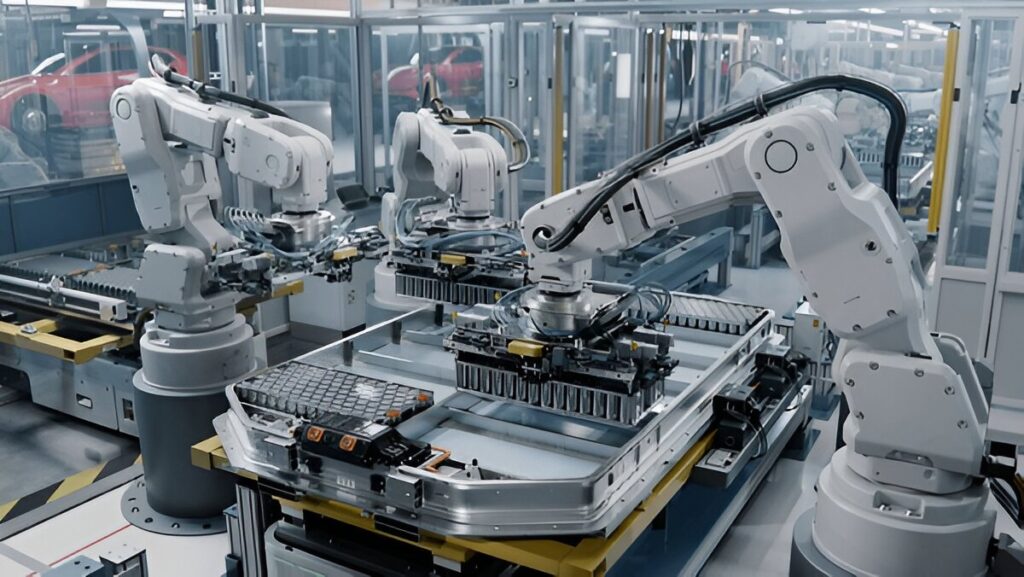Cables are essential components in various industries, from construction to marine applications. One of the most popular and versatile types of cables available today is plastic covered metal cable volens. This type of cable features a robust metal core coated in durable plastic, offering a unique combination of strength and flexibility. Whether you’re looking for a reliable solution in outdoor environments or simply a sturdy cable for household use, plastic covered metal cable volens can meet a wide range of needs. In this guide, we’ll explore the features, benefits, and applications of this versatile product.
What is Plastic Covered Metal Cable Volens?
At its core, a plastic covered metal cable volens consists of a strong, durable metal wire (usually made of steel or other high-strength metals) encased in a layer of protective plastic. The plastic coating acts as a barrier between the metal and external elements, offering protection from moisture, UV rays, chemicals, and physical damage. This makes plastic covered metal cables ideal for outdoor use, where exposure to the elements can quickly degrade uncoated metal cables.
The name “volens” often refers to a specific brand or style of these cables, but it generally indicates a high-quality, durable version of the plastic-covered metal cable category.
The Benefits of Plastic Covered Metal Cables
When compared to uncoated metal cables or other types of covered cables, plastic covered metal cable volens offer several key advantages.
Durability and Weather Resistance
One of the most significant advantages of plastic covered metal cables is their durability in harsh environments. The plastic coating protects the metal core from rust and corrosion, making the cable resistant to moisture, chemicals, and UV rays. This makes it a popular choice for outdoor applications, including construction projects and marine environments, where unprotected metal cables would quickly degrade.
The plastic coating also acts as a buffer against physical damage, such as cuts and abrasions, extending the lifespan of the cable. For outdoor or high-use applications, plastic-covered cables can provide a longer-lasting solution than uncoated cables.
Flexibility and Versatility
Plastic covered metal cables are incredibly flexible, allowing them to be used in a wide variety of applications. Whether you need a strong cable for industrial use or a lightweight option for home projects, plastic covered metal cables can be tailored to fit specific requirements. The flexibility of the plastic coating allows the cable to bend and move without breaking, which is particularly useful in applications where the cable needs to follow a curved path or be moved frequently.
Key Applications of Plastic Covered Metal Cable Volens
Plastic covered metal cable volens are used in various industries, ranging from heavy-duty construction to DIY home projects. Let’s explore some of the most common uses.
Construction and Engineering
In construction, plastic covered metal cables are frequently used for securing loads, supporting structures, and anchoring equipment. The combination of a strong metal core and protective plastic coating makes these cables ideal for use in harsh environments like construction sites, where they may be exposed to dirt, water, and physical stress.
Marine and Outdoor Applications
The weather-resistant properties of plastic covered metal cable volens make them perfect for marine applications. Boats, docks, and piers often require durable cables that can withstand saltwater and constant exposure to sunlight. The plastic coating prevents corrosion and extends the cable’s lifespan in these challenging conditions.
Household and DIY Uses
At home, plastic covered metal cables are frequently used for projects like securing fences, hanging heavy objects, or even organizing items in the garage. Their versatility and ease of use make them a go-to choice for DIY enthusiasts who need strong, flexible, and reliable cables for various tasks.
Also Read: How to Pick a Lock with a Bobby Pin: Tips and Tricks
How to Select the Right Plastic Covered Metal Cable Volens
Choosing the right plastic covered metal cable for your needs depends on several factors, including the cable’s gauge, the type of plastic coating, and the intended application.
Determining the Right Gauge
The gauge of the cable refers to its thickness, and it plays a crucial role in determining the cable’s strength and flexibility. Thicker cables (with lower gauge numbers) are stronger and more durable but may be less flexible, making them better suited for heavy-duty applications like construction or marine use. Thinner cables (with higher gauge numbers) are more flexible and easier to work with, making them ideal for lighter applications like household projects.
Plastic Coating Thickness and Material
The type and thickness of the plastic coating can also affect the cable’s performance. Thicker coatings offer better protection against physical damage and environmental factors, but they can reduce the cable’s flexibility. Common materials used for plastic coatings include PVC (polyvinyl chloride) and polyethylene, both of which provide excellent weather resistance and durability. Choosing the right coating material and thickness depends on the conditions the cable will be exposed to and the level of protection required.
How to Install and Use Plastic Covered Metal Cable Volens
Proper installation of plastic covered metal cables is crucial to ensuring their long-term performance and safety.
Tools and Equipment Needed
To install plastic covered metal cables, you’ll need a few essential tools, including cable cutters, wire crimpers, and cable clamps. These tools help you cut the cable to the desired length and secure it in place. For heavy-duty applications, you may also need a winch or pulley system to handle the tension required for securing large loads.
Safety Considerations During Installation
When working with metal cables, safety is paramount. Always wear protective gloves to avoid cuts or abrasions, and use appropriate safety gear, such as eye protection, when cutting or securing cables. Ensure that the cable is properly secured and that the tension is evenly distributed to prevent accidents during use.
Maintenance and Care for Plastic Covered Metal Cables
Regular maintenance of plastic covered metal cables can significantly extend their lifespan and ensure they perform optimally.
Cleaning and Inspecting the Cable
Regularly cleaning your plastic covered metal cables helps remove dirt, grime, and other contaminants that can degrade the plastic coating over time. Use a mild soap and water solution to wipe down the cable, and inspect it for signs of wear or damage, such as cracks in the plastic coating or rust spots on the metal core.
Preventing Corrosion and Rust
While the plastic coating offers excellent protection against corrosion, it’s still important to regularly inspect the cable for any damage to the coating that could expose the metal to moisture. If you notice any cracks or breaks in the coating, repair them immediately to prevent rust and corrosion from developing.
Comparison Between Plastic Covered Metal Cables and Other Cable Types
When choosing the right cable for your needs, it’s important to consider how plastic covered metal cables compare to other types of cables.
Advantages of Plastic Coated Cables Over Rubber Coated Cables
Plastic coated cables are generally more durable and weather-resistant than rubber-coated cables. While rubber offers some protection against physical damage, it can degrade over time when exposed to UV light or extreme temperatures. Plastic coatings, on the other hand, are more resistant to environmental factors, making them a better choice for outdoor applications.




